Overview: Paper Folding Method | General Aptitude for GATE - Mechanical Engineering PDF Download
Paper Folding
- In a Competitive exam, Reasoning is one of the most important section. A good score in Reasoning test can lead you to score very good marks in competitive exams. You can achieve a good marks only if you have a depth knowledge of reasoning skills. Basically reasoning is divided into few sections according to logic and type. This Paper Folding topic is one of them.
- Paper Folding is a process in which a piece of paper (with certain embedded design pattern) is folded along a certain dotted line and it is asked to select the correct folded pattern.
- Questions based on 'Paper Folding' comprise of a question figure representing a transparent sheet and four answer figures. The transparent sheet contains some figural pattern and one/more dotted lines. These dotted lines indicate the axis (axes) along which the paper is folded. A candidate is asked to choose an option from the given set of options, which would resemble the design that appears on the transparent sheet after folding.
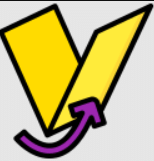
Example: Find the pattern which will appear on the transparent sheet after it is folded along the dotted line.
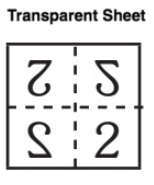
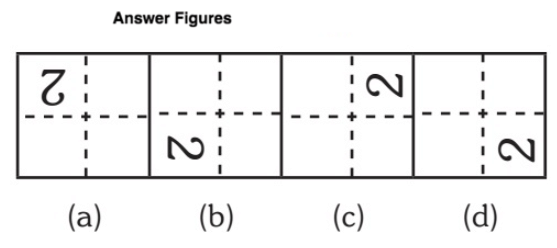
Ans: (a)
Sol: Paper will be folded from right to left then down to up.Thus, figure (a) is the correct figure, and the answer is (a).
Few Important things to Remember
Time is a very important thing in every exams. You should complete your exam within the time frame. But in a competitive exam, question are for testing your calculation ability within a given time frame. They tests, how quickly a student can solve a question paper. This is the reason so many students couldn’t finish their paper within given time. But if you need to solve your government or bank or any other question paper quickly then you should use tricks of reasoning and Paper Folding.
For problems on Paper Cutting, imagine the process of folding, cutting and opening, and draw indicative diagrams if required
Example: Find the pattern which will appear on the transparent sheet after it is folded along the dotted line.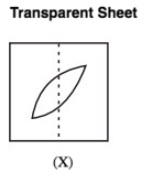
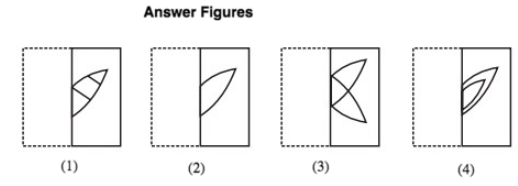 Ans: (3)
Ans: (3)
Sol: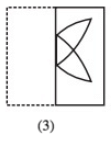 If you fold the paper from left to right from dotted line, the left part figure will go in opposite direction. Please take a transparent paper and draw a similar figure and fold it.Thus, figure (3) is the correct figure, and the answer is (3).
If you fold the paper from left to right from dotted line, the left part figure will go in opposite direction. Please take a transparent paper and draw a similar figure and fold it.Thus, figure (3) is the correct figure, and the answer is (3).
|
193 videos|169 docs|152 tests
|
FAQs on Overview: Paper Folding Method - General Aptitude for GATE - Mechanical Engineering
| 1. What is paper folding method? |  |
| 2. How can paper folding be useful in daily life? |  |
| 3. Is paper folding suitable for children? |  |
| 4. Can paper folding be used for educational purposes? |  |
| 5. Are there any health benefits associated with paper folding? |  |





















